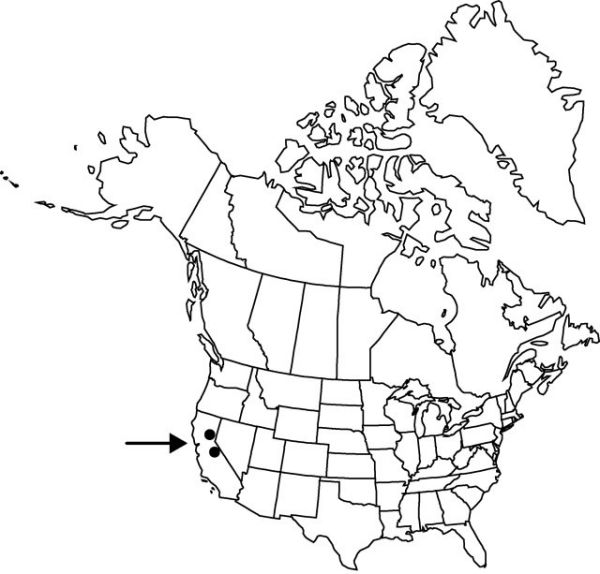Triteleia montana
Amer. Midl. Naturalist 25: 95. 1941.
Leaves 10–30 cm × 2–5 mm. Scape 5–20(–25) cm, ± scabrous. Flowers: perianth yellow, aging purple, 12–17 mm, tube slender, narrowly funnelform, attenuate at base, 4–7 mm, lobes somewhat spreading, with brown midvein, 8–10 mm, ca. twice as long as tube; stamens attached at 1 level, equal; filaments linear, 5–6 mm, more than 1/2 as long as perianth lobes, apical appendages absent; anthers cream or blue, 1–1.5 mm; ovary equal to stipe; pedicel 0.5–3 cm. 2n = 16.
Phenology: Flowering summer (Jun–Jul).
Habitat: Open montane coniferous forest, gravelly plains, granite ridges
Elevation: 1200–3000 m
Discussion
Locally rather plentiful, Triteleia montana appears to have a disjunct distribution in the Sierra Nevada range north and south from Yosemite, though future collections may bridge the gap between the distributions currently indicated. Molecular data suggest that it is related to T. lemmoniae of Arizona (J. C. Pires 2000).
Selected References
None.
